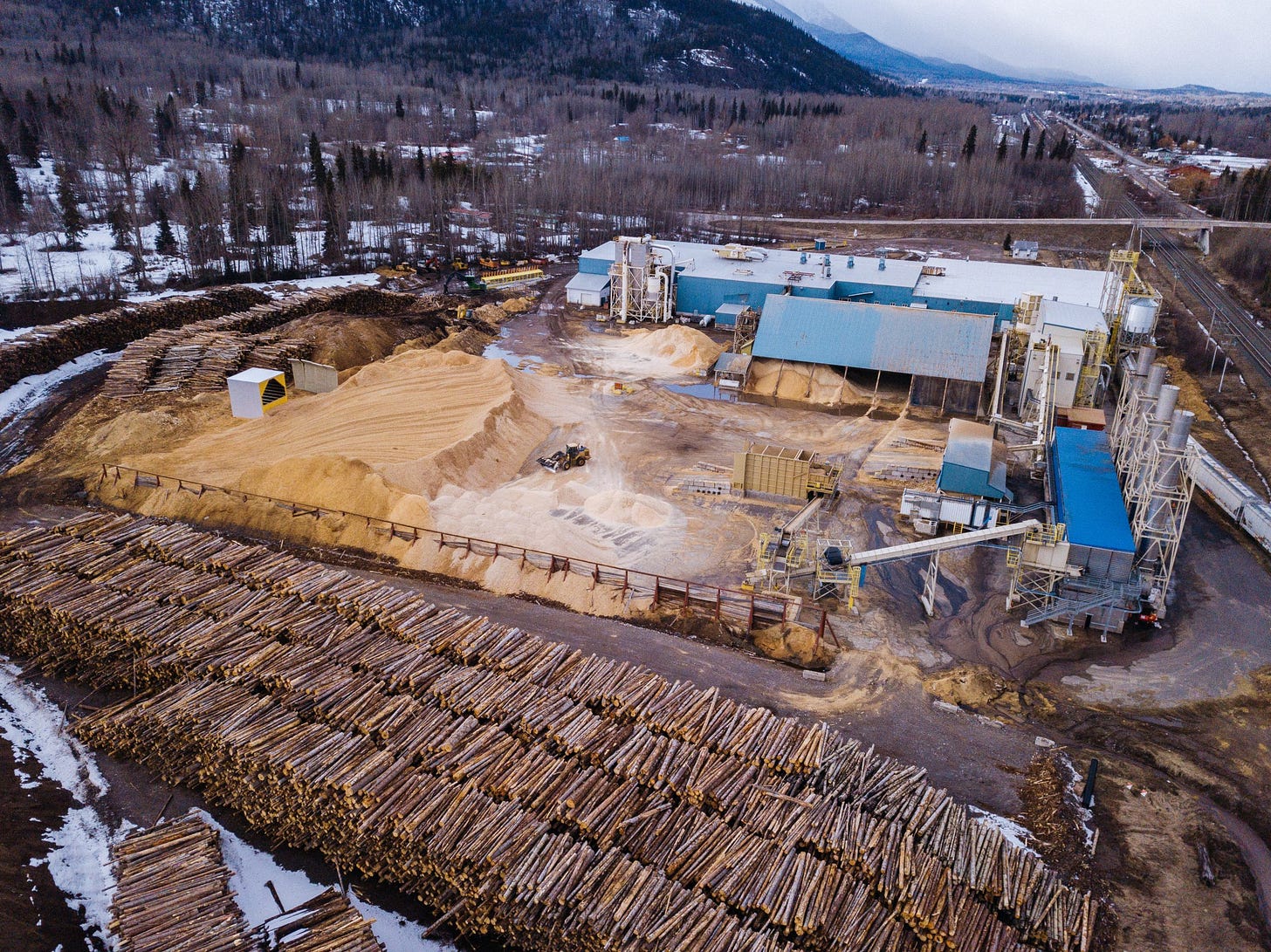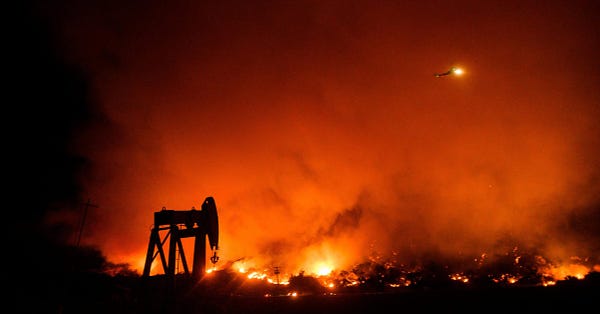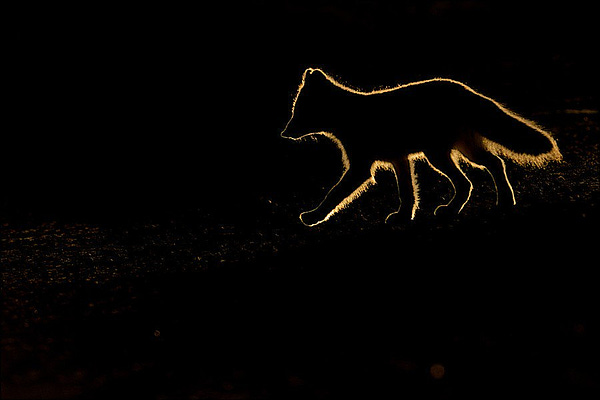PRESENTED BY THE LETTER X
“The forests are destroyed, and the world burns.”
In Marvel Comics, Drax the Destroyer is a superhuman galactic being (once a groovy sax-playing real-estate agent) who is Thanos’ nemesis until Thanos dies, and beset by emptiness of purpose, he goes after Captain Marvel, is confused for the Hulk by a Microverse princess, et cetera et cetera. On Earth-1218, the title of Drax the Destroyer belongs to Drax Power Station, a coal plant that has been converted to burning forests with public subsidies and IPCC loopholes.
Better-writer-than-yours-truly1 Sarah Miller in the New Yorker introduces Drax as “the sad honk of a mistake, ending in a hazardous-chemical ‘X.’”
Drax, she explains, burns wood pellets that are ostensibly “sustainable biomass,” credited under the Kyoto Protocol and Paris agreement as carbon-pollution free. This made sense when burning wood was “only a minor part of energy production—small-scale enough that forest regrowth could theoretically keep up with the incidental harvesting of trees.”
Now it’s quite simply a catastrophic loophole. Biomass now accounts for nearly sixty per cent of all officially renewable energy production in the European Union. Drax alone burned enough trees to emit 13.2 million tons of carbon dioxide in 2020, and got paid about $1.1 billion in British subsidies to do so. Scot Quaranda of the Dogwood Alliance told Miller:
“The governments can claim they are compliant, while former coal companies that would have been dead get rich on government subsidies and selling electricity—much of which, with proper planning, could have come from wind and solar. The forests are destroyed, and the world burns.”
“We don’t have a timber industry in the U.K., so we don’t have all the waste that they have there in the United States, and also Canada,” a Drax guide told the tour group including Miller, unconsciously invoking John Locke.2 “They have all these lovely trees, for making things and so on, they cut down these trees, make those things, furniture, boards, you know, and we just use the bits of the trees they are not using.”
This year, Drax acquired Pinnacle Pellet, which produces millions of tons of wood pellets from stacks and stacks of logs from the forests of British Columbia and the southern United States.
“Pinnacle isn’t a logging company,” Selina Williams, a long-time Wall Street Journal oil industry reporter and now one of the Drax flacks, told Miller. When Miller restated “logging” as “tree-cutting-down,” Williams repeated derisively: “Tree-cutting-down? What do you mean by tree-cutting-down?”
Funny about that: an earlier investigation published by The Narwhal3 in May reports:
But Pinnacle’s head of sustainability, Joseph Aquino, confirmed that the company has logging licenses bought from B.C. Timber Sales.

As one of the tour participants blurted, “It’s wonderful that they’ve come up with a use for all that leftover wood!”
I’m not even getting into the phantom bioenergy with carbon capture and sequestration (BECCS) component of the Drax game — but Sarah does.
Fox News Alert:
The Biden White House issued a climate procurement executive order for the federal government, which includes 100% carbon-free electricity (renewable plus nuclear) and 100% zero-emission vehicles (electric plus fuel cell) by 2030. The Federal Sustainability Plan has the details. “Natural climate solutions” is scientific jargon for “maybe we can quantify the value of having a biosphere before it’s gone.” Joe Manchin, holding all the cards, is working to keep expanding Build Back Better’s 45Q tax credit; the fossil lobby says yes please; climate nerds point out that would be very bad. Exposed by Alex Kotch: the American Legislative Exchange Council (ALEC) is pushing around the Energy Discrimination Elimination Act with the promise to fight “woke capitalism.”


Open Thread Question of the Day: What is your favorite thing about forests? Alternatively, what’s your favorite forest?
There are many.
“. . . the wild woods and uncultivated waste of America, left to nature . . . land that is left wholly to nature, that hath no improvement of pasturage, tillage, or planting, is called, as indeed it is, waste; and we shall find the benefit of it amount to little more than nothing.”
The Narwhal has been previously featured in Hill Heat. Seriously, what a great publication!









The most remarkable forest I've ever been in is the Ecuadorian rain forest. It is overwhelming in every way. My favorite forests, though, are winter forests, silent and white, water running under ice in the streams.